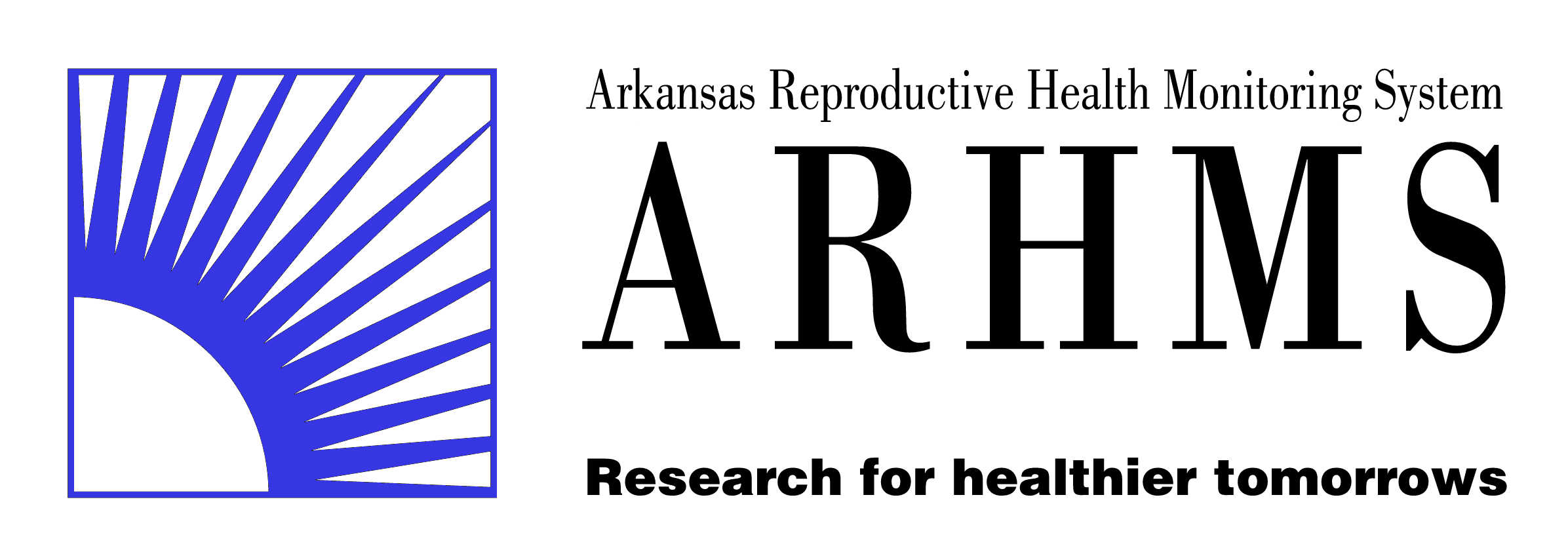Arkansas Reproductive Health Monitoring System (ARHMS)
The Arkansas Reproductive Health Monitoring System (ARHMS) was enacted by state law in 1985 by former President Bill Clinton who was then the Governor of Arkansas. After more than 10 years of birth defects surveillance, the Arkansas Center for Birth Defects Research and Prevention (Arkansas Center) was established in 1997 at the University of Arkansas for Medical Sciences (UAMS) in Little Rock by a competitive grant award from CDC.
Charlotte A. Hobbs, M.D., Ph.D., Professor and Chief of the Section of Birth Defects Research in the University of Arkansas for Medical Sciences College of Medicine Department of Pediatrics and the first chair holder of The Pamela D. Stephens Endowed Chair in Birth Defects Research, is the Director of the Arkansas Center for Birth Defects Research and Prevention. In addition to directing the Arkansas Center and ARHMS, Dr. Hobbs is an Attending Physician in the Divisions of Neonatology and Emergency Medicine at UAMS College of Medicine and ACH, conducts independent research funded by National Institute of Child Health and Human Development, and is co-investigator of multiple research studies.
The ARHMS plays a key role in the Center's daily operations. Since the establishment of the Arkansas Center, the ARHMS has expanded from a surveillance system with a small staff to a research and prevention organization with clinicians and scientists. These professionals focus on three interdisciplinary research themes: 1) gene environment interactions; 2) epidemiology and surveillance; and 3) health services research and community interventions. Each research group uses a multidisciplinary approach to advance its understanding of the causes of birth defects and their impact on Arkansas and the nation. Clinicians and experts in pediatrics, neonatology, human genetics, pediatric cardiology, clinical dysmorphology, biostatistics, biochemistry, nutrition, molecular biology, health economics, health services research, and genetic epidemiology combine their skills to advance the Center's research agenda. The Center's partnership with the Arkansas Department of Health facilitates collaboration with public health professionals in maternal and child health, nutrition, health education, and health statistics.
The Arkansas Center's capacity to perform genetic studies was greatly enhanced in 2002 with the support from Arkansas Biosciences Institute (ABI) through the establishment of the Center's state-of-the-art Genomics Laboratory at Arkansas Children's Hospital Research Institute (ACHRI).
The ABI, founded through state appropriations from national tobacco settlement revenues, stimulates important research into areas of health affected by use of tobacco products. The Genomics Laboratory plays a key role in all of the major studies currently underway at the Arkansas Center.
The Arkansas Center also serves as the lead agency for the Arkansas Folic Acid Coalition, which encourages Arkansas women of childbearing age to take a multivitamin containing 400 micrograms of folic acid daily and to eat foods rich in folate to help prevent neural tube defects such as spina bifida. This important message is communicated through various public media, healthcare and patient education and consistent involvement in folic acid awareness initiatives.
In addition to the CDC funding, essential funding support has also come from the National Institute of Child Health and Human Development, the Arkansas state legislature, the Arkansas Children's Hospital Research Institute, the Arkansas Biosciences Institute, the Arkansas Blue Cross and Blue Shield Foundation for a Healthier Arkansas and the Pamela D. Stephens Endowed Chair. Through continued support of sponsors and study participants and collaborative efforts, the Arkansas Center will work to combine surveillance, research and prevention to help diminish the consequences of birth defects and help make a difference in the lives of children and families affected by birth defects.
To learn more about the Arkansas Center for Birth Defects Research and Prevention visit http://arbirthdefectsresearch.uams.edu.